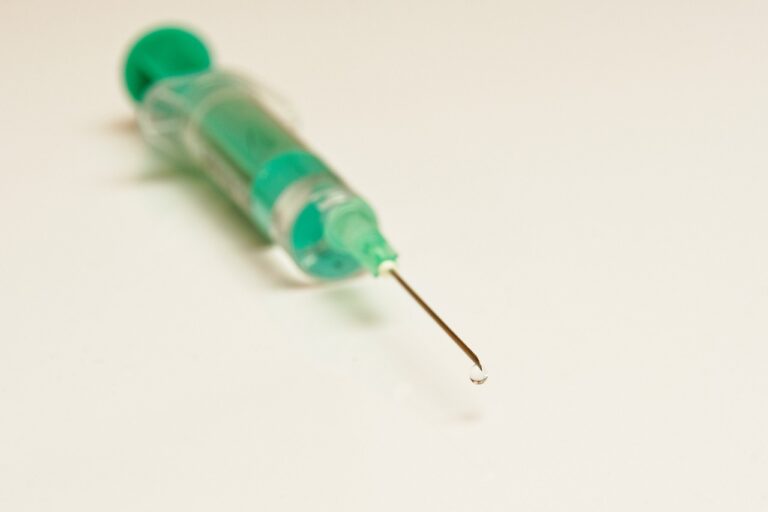Gastrointestinal Health and Internet of Things (IoT): All pannel.com, Lotus book 365, Laserbook247
all pannel.com, lotus book 365, laserbook247: The world of healthcare is constantly evolving, with new technologies and innovations revolutionizing the way we approach wellness and disease prevention. One such innovation that is making waves in the field of gastrointestinal health is the Internet of Things (IoT). IoT refers to the network of physical devices, vehicles, home appliances, and other items embedded with sensors, software, and connectivity that enables them to connect and exchange data.
When it comes to gastrointestinal health, IoT has the potential to transform the way we monitor and manage our digestive systems. By leveraging IoT devices and sensors, individuals can track their food intake, monitor their digestive health, and even receive real-time feedback on their gut health.
### How IoT is Revolutionizing Gastrointestinal Health
1. **Smart Pill Technology**: One of the most exciting advancements in gastrointestinal health is the development of smart pills. These ingestible capsules contain sensors that can monitor various aspects of your digestive system, such as pH levels, temperature, and even the presence of certain bacteria. This data is then transmitted to a smartphone app, allowing individuals and healthcare providers to track gut health in real-time.
2. **Smart Kitchen Appliances**: IoT-enabled kitchen appliances, such as smart refrigerators and scales, can help individuals make healthier food choices that promote gastrointestinal health. These devices can track food expiration dates, suggest healthy recipes based on available ingredients, and even alert users to potential allergens or irritants in their food.
3. **Wearable Health Trackers**: Wearable devices like smart watches and fitness trackers can also play a significant role in monitoring gastrointestinal health. These devices can track factors like heart rate, sleep patterns, and stress levels, all of which can impact gut health. By analyzing this data, individuals can make informed lifestyle choices that support digestive wellness.
### Benefits of IoT for Gastrointestinal Health
– **Improved Monitoring**: IoT devices provide real-time data on digestive health, allowing individuals to track trends and make informed decisions about their diet and lifestyle.
– **Personalized Treatment**: By collecting data on individual gut health, healthcare providers can tailor treatment plans to meet the specific needs of each patient, leading to more effective outcomes.
– **Remote Monitoring**: IoT technology enables healthcare providers to remotely monitor patients with gastrointestinal conditions, reducing the need for in-person visits and improving access to care.
– **Preventative Care**: With IoT devices, individuals can proactively monitor their gut health and make changes to their diet and lifestyle before serious health issues arise.
### Challenges and Considerations
While IoT holds great promise for improving gastrointestinal health, there are some challenges and considerations to keep in mind. Privacy and security concerns are paramount when it comes to collecting and transmitting sensitive health data. It is essential to ensure that IoT devices adhere to strict data protection standards to safeguard patient information.
Additionally, there is the issue of data overload. With the sheer amount of data collected by IoT devices, individuals and healthcare providers may struggle to make sense of it all. It is crucial to develop algorithms and tools that can analyze and interpret this data effectively to provide actionable insights.
### The Future of Gastrointestinal Health and IoT
As technology continues to advance, the future of gastrointestinal health looks bright. With IoT devices becoming more sophisticated and widespread, individuals will have unprecedented access to information about their digestive health. From smart pills to wearable health trackers, the tools available for monitoring and managing gut health will only continue to improve.
By harnessing the power of IoT, we can empower individuals to take control of their gut health, leading to better outcomes and a higher quality of life. The potential benefits of IoT for gastrointestinal health are vast, and as technology continues to evolve, we can expect to see even more exciting innovations in this space.
### FAQs
1. **How secure is the data collected by IoT devices in monitoring gastrointestinal health?**
– Data security is a top priority for IoT devices used in healthcare. These devices must adhere to strict data protection standards to ensure that patient information is kept safe and secure.
2. **What are some of the challenges of using IoT for gastrointestinal health monitoring?**
– Some challenges include data overload, privacy concerns, and the need for effective algorithms to analyze the data collected by these devices.
3. **Can IoT devices be used for preventative care in gastrointestinal health?**
– Yes, IoT devices can help individuals proactively monitor their gut health and make changes to their diet and lifestyle before serious health issues arise.
In conclusion, IoT has the potential to revolutionize the way we approach gastrointestinal health. By leveraging IoT devices and sensors, individuals can monitor their digestive health in real-time, make informed decisions about their diet and lifestyle, and receive personalized treatment from healthcare providers. The future of gastrointestinal health looks bright, thanks to the power of IoT technology.







